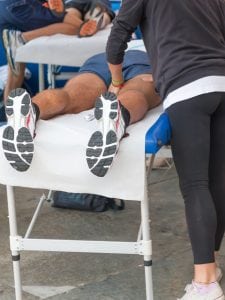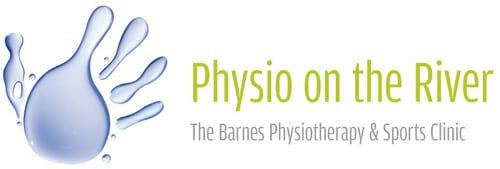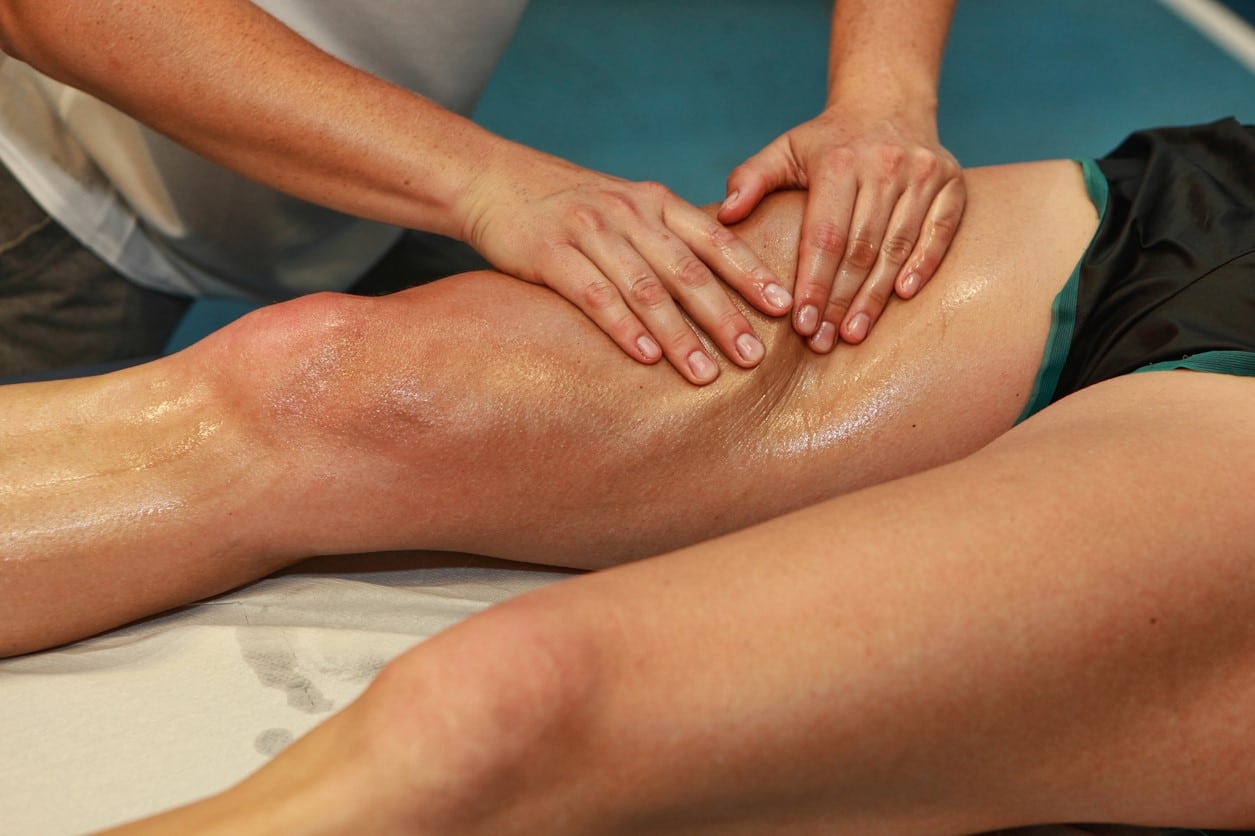Massage Monday – how we can help you recover from the London Marathon!
If you have just woken up after completing the London Marathon yesterday, you may well be feeling stiff and sore! This week I asked our new massage therapist, Rachel Jarvis, to tell us how massage can help you recover from a marathon.
Rachel recently jointed our massage team of three. She is a very keen runner herself and competes in triathlons and endurance cycling events so knows all about recovery!
Rachel qualified with a Level 5 Professional Diploma in Sports and Remedial Massage from the North London School of Sports Massage (NLSSM).
Rachel’s 6 top massage benefits
- Massage reduces muscle soreness by flushing out the build up of toxins from the muscle and other soft tissues of the body. This reduces soreness or DOMS – short for ‘delayed onset muscle soreness’ which is the pain and stiffness felt in muscles several hours to days after unaccustomed or strenuous exercise. The soreness is felt most strongly 24 to 72 hours after the exercise.
- Massage helps improve blood flow to the tissues which in turn helps the tissues to heal and helps you recover from the fatigue felt after the run.
- A post event massage allows the therapist to assess the condition of your muscles and identify any particular areas of tension.
- It helps to restore your flexibility through re-balancing the musculoskeletal system. If you don’t feel so stiff and sore you will move with more ease and be able to stretch further.
- Massage can help to re-energise you through relaxation.
When is the best time to have a massage after the marathon?
 If you have competed in a marathon before, you may have been offered a short post event massage at the finish line. This can start the process and this first massage will be gentle. Benefits can be seen for up to a week after the event. As the days go by after the event, a deeper and longer massage can be given.
If you have competed in a marathon before, you may have been offered a short post event massage at the finish line. This can start the process and this first massage will be gentle. Benefits can be seen for up to a week after the event. As the days go by after the event, a deeper and longer massage can be given.
Rachel recommends taking the immediate post event massage but it shouldn’t be a replacement for a proper treatment later in the week.
Are there any other self help things you can do to aid recovery?
Rachel recommends:
- drinking plenty of water to rehydrate yourself and help to flush those toxins through your system
- keeping active! It sounds like the wrong thing but taking a steady walk or very low intensity recovery run, swim or bike ride can actually help to prevent stiffness and soreness!
What should I do if I sustained an injury during the marathon?
We recommend coming to see one of our Sports Physiotherapists to get your injury checked out professionally. As soon as you can it’s always a good idea to use the PRICE method of initial treatment:-
P for protection – bandage the injured part to give it support or use a crutch or stick if required
R for rest – rest the part for the first couple of days
I for ice the injured part. We have some very good ice packs we sell at POTR. They are gel ice packs that don’t lose their flexibility with freezing and have a very good cover to protect you from an ice burn.
C for compression – the supporting bandage or elastic support will help to compress the tissues and minimise excessive bleeding into the tissues and swelling.
E for elevation – raise your injured part higher than your heart if you can! So if it’s your ankle, lie down and place your leg on a couple of pillows to help reduce swelling.
Next steps…..
If you’d like to take advantage of our special massage offer – 6 for the price of 5 – a saving of up to £62, or book an appointment with one of our Physios:
Call us on 020 8876 5690
Email us here
Book online here
Or just pop in for a chat first!



